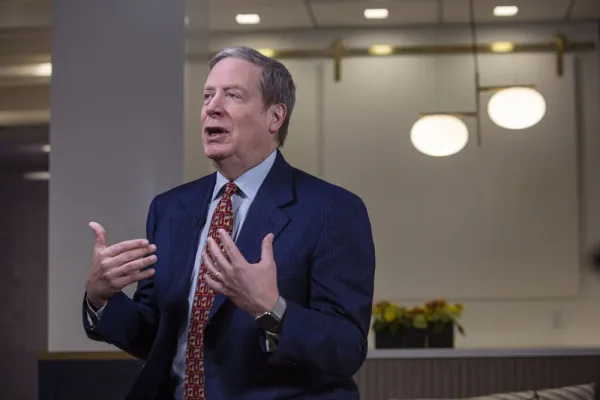Goldman Sachs Group bought one in December 2018. A month later, Canterbury Consulting set one up for its clients.
Funds-of-hedge funds, or investment pools that manage portfolios of hedge funds and charge an additional layer of fees, are making something of a comeback — and data and analytics provider eVestment has another piece of research to prove it.
On Monday, the firm released its annual survey of alternative fund administrators and found that the administrators serving funds-of-hedge funds saw a resurgence in 2018. In 2018, the median fund-of-hedge funds administrator’s assets under administration increased 10.99 percent year-over-year. Administrators surveyed reported that their fund-of hedge-funds assets under administration stood at $933.95 billion at the end of 2018, according to eVestment’s data, based on responses from 30 fund administrators.
“Funds-of-hedge funds have been outsourcing fund administration for some time, and our survey participants did not mention any changes specific to the industry which would make such services more pertinent than they have been historically,” said Mike Cho, senior research analyst at eVestment, by email Monday. “That would lead us to believe that growth in funds-of-hedge funds’ assets under administration are most likely a reflection of investors’ renewed interest in funds-of-hedge funds.”
The median fund-of-hedge-funds administrator’s assets under administration in 2017 had increased 2.61 percent year-over-year, the report showed. In 2016, that number was net negative, according to eVestment.
These funds posted a steep decline in assets under management following the financial crisis and also faced criticism for their fee structure, which added an additional layer of fees on top of the underlying managers’ already-substantial performance and management fees. Meanwhile, more pension funds opted to bypass funds-of-hedge funds and go direct after gaining several years of experience with the industry via funds-of-funds investments.
At the same time, as active managers of all stripes were forced to cut fees as investors flocked to lower-cost passive investments, many funds-of-funds managers slashed their fees, too. But Cho noted in a separate phone interview with Institutional Investor that the business model still makes sense for certain types of investors.
“The narrative that funds-of-funds fees are onerous, that weighed on a lot of investors’ minds,” Cho said by phone Monday. “While it’s bad to have that headline double layer fees figure, the fact of the matter is, if you’re an investor and want the hedge fund exposure but can’t do all the due diligence yourself, it may make sense to invest with a fund of funds.”
Cho added that today’s funds-of-hedge funds are offering more flexible options for investors than they did previously, which could be contributing to their growth.
Aggregate assets under administration for hedge funds of funds increased 12.8 percent in 2018 relative to the prior survey period, according to the report.
[II Deep Dive: Why Canterbury Is Starting a Fund of Hedge Funds]
And it appears that 2019 will bring more of the same for funds-of-hedge funds.
“We do a separate project on pension fund managers,” Cho said. “Last quarter they said they were going to increase their allocations to hedge-funds-of-funds. That would be bullish for the segment.”







